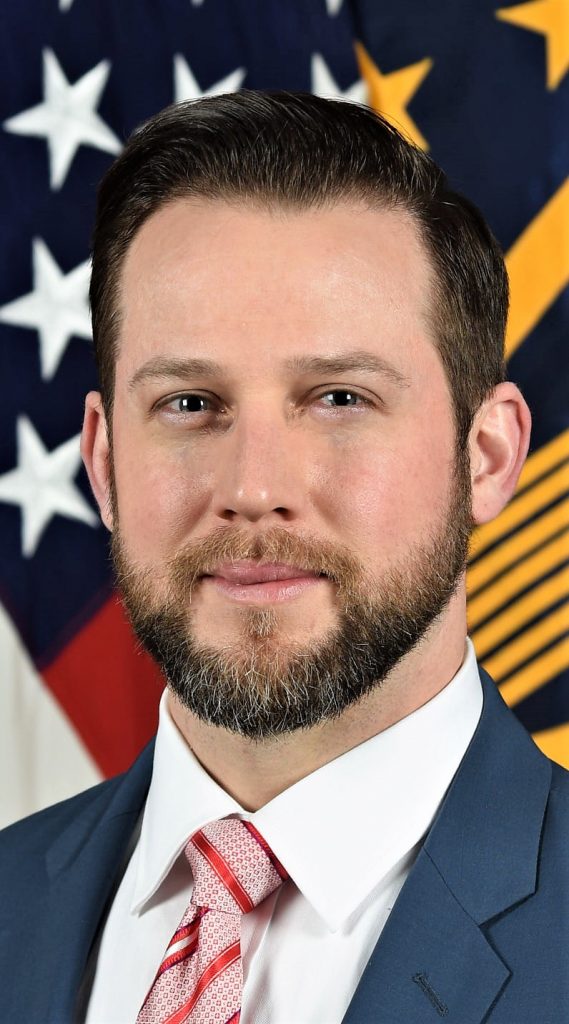


Get a free copy of Parental Rights & Education when you subscribe to our newsletter!

“Christianity is about making God’s Word the first and final authority on all of life, beginning first with our own lives and prejudices.”
@william_e_wolfe
Those dang white people and — checks notes — their “Christian worldview!”
At least, that’s the (outlandish) claim that was circulated on Twitter last week by Kristin Du Mez, via David Gushee’s blog, who was promoting Jacob Allan Cook’s new book “Worldview Theory, Whiteness, and the Future of Evangelical Faith.”
Now, if you don’t know any of those names, trust me, you’re better off that way. Kristin Du Mez is a professor of history and gender studies at the increasingly (already gone?) liberal Calvin University, so she’s ostensibly an academic scholar, a trained historian. In her recent book, “Jesus and John Wayne,” Du Mez argues — and read this slowly — that “white evangelicalism is characterized by patriarchy, toxic masculinity, authoritarianism, nationalism, anti-gay sentiment, Islamophobia and indifference to Black people’s lives and rights.”
That sort of smear should be dismissed out of hand. But in the words of David Gushee, “Du Mez’s storytelling is second to none, exposing the seamy underside of toxic masculinist Christianity in the U.S.”
Why draw your attention to this? Because the claims that “scholars” like Du Mez, Gushee, and Jacob Allan Cook (as we will see) are making are so cynical and unbiblical, not to mention corrosive to constructive discourse, that they merit attention and correction.
Because a Christian worldview is not and has never been about “whiteness.” It’s about being faithful to God’s Word in all of life. And we shouldn’t let any progressive, elitist academic tell us otherwise.
Where, you might ask, did this word salad start getting mixed? It began with David Gushee, professor of Christian ethics at Mercer University and senior columnist for Baptist News Global, publishing a piece called “The deconstruction of American evangelicalism.” Now, that title alone should raise your eyebrows.
In his article, he highlights a rouge’s gallery of recent authors (Du Mez, Jemar Tisby, Samuel Perry, Andrew Whitehead, Beth Allison Barr) and their newly published books (“The Color of Compromise,” “Taking America Back for God,” etc.), contributing to this “deconstruction.”
Arguably, each of these books makes the same, progressive, new-but-old argument, just from a different intersectional lens, depending on the book (either race, gender, political affiliation, etc.): “You (white) Christians think you are being biblical, but really you’re just a bunch of bigots.”
But Gushee makes a point to pay special attention to a book by a former student of his, Jacob Allan Cook. In Cook’s new book, “Worldview Theory, Whiteness, and the Future of Evangelical Faith,” Gushee exclaims that:
“Cook shows quite powerfully that what white evangelicals have labeled ‘the Christian worldview’ bears a striking resemblance to ‘whiteness,’ that is, white-centered and white-hegemonic ways of viewing and arranging the world and responding to human difference. In other words, all those worldview conferences and seminars really may have been about teaching us how to think like white people, not like Christian people.”
Look at that last part again: “…all those worldview conferences and seminars really may have been about teaching us how to think like white people, not like Christian people.”
That’s right. Your Christian worldview isn’t actually a Christian worldview. It’s just whiteness — surprise! — again.
Unsurprisingly, the irony of the solution — “Here! Buy my book for $120…which totally isn’t just a competing worldview grounded in a progressive version of Christianity (wink, wink)” — seems totally lost on the Cooks, Gushees, and Du Mezes of the world. But I trust it isn’t lost on you.
This type of thinking, and pseudo-scholarship, is running rampant in some evangelical circles. How should faithful believers respond? Well, here are five things wrong with this line of thinking:
1. They completely misunderstand what a Christian worldview is and how, historically, conservative evangelicals — a la Carl F. H. Henry — advanced this way of thinking.
It’s about making God’s Word the first and final authority on all of life, beginning first with our own lives and prejudices. A Christian worldview, when applied correctly, both 1) interprets and challenges the culture, calling it to repentance, and 2) convicts the Christian when they, too, are out of line. The newly formed Center for Biblical Worldview at the Family Research Council defines it like this: “We believe a person exhibits a biblical worldview when their beliefs and actions are aligned with the Bible, acknowledging its truth and applicability to every area of life.”
This is profoundly biblical. Christians are commanded in Luke 10:27 to “‘Love the Lord your God with all your heart and with all your soul and with all your strength and with all your mind’ and, ‘Love your neighbor as yourself.’” The only way we can hope to do this well is through the development and use of a robust Christian worldview. It’s the practical outworking of Romans 12:1-2: “Therefore, I urge you, brothers and sisters, in view of God’s mercy, to offer your bodies as a living sacrifice, holy and pleasing to God—this is your true and proper worship. Do not conform to the pattern of this world, but be transformed by the renewing of your mind. Then you will be able to test and approve what God’s will is—his good, pleasing and perfect will.” How do we know if are being conformed to the pattern of this world or not? How do you “test and approve what God’s will is?”
How do we know if we are loving God with our minds? By building, and using, a biblical Christian worldview.
2. They functionally deny sola Scriptura (by Scripture alone).
How? Because all those positions and beliefs that they want to lump under the label of “whiteness” — for example, opposing abortion (Exodus 20:7; Leviticus 18:2; Leviticus 20:1-5; Psalm 139:13-16), complementarianism and God-given gender roles (Genesis 1:26-27; Genesis 2:21-25, 1 Corinthians 11:2-16; Ephesians 5:22-33; 1 Timothy 2:12), understanding homosexuality and transgenderism as sin (Genesis 1:26-27; Genesis 19; Leviticus 18:22; Romans 1:24-27), 1 Corinthians 6:9-11) — are not cultural beliefs, but explicitly biblical teachings. If God’s Word is our final authority — which is what sola Scriptura means — then we must submit to what God’s Word says, whether we like it or not. The ground is not ours to give up. Holding these beliefs isn’t some form of cultural construct in favor of white people — it’s just orthodox Christianity. It’s the same old faith that has been practiced for 2,000-plus years. But that’s clearly not what these authors think, and thereby, they deny sola Scriptura as a reasonable — in fact, the final — authority and guide for Christian faith and life. This is painfully evident in works by Samuel Perry and Andrew Whitehead, like “Taking America Back for God,” or Du Mez in “Jesus and John Wayne.” Now I guess Jacob Allan Cook is joining the party, too.
3. It’s just so cynical.
Because they don’t believe what the Bible teaches on these issues, they assume conservative evangelicals are just twisting Scripture for the sake of “power.” Their worldview also starts with a “C” — but it’s not Christian, it’s Critical Theory. They aren’t hiding the fact they are undertaking a deconstruction project, which is obviously rooted in their Critical Theory–saturated worldview, where everything is a zero-sum game of intersectional power politics. They view people like you — faithful pew-sitters on Sunday morning — as right-wing Christian nationalists, closet racists, misogynists, etc., all threatened by some demographic displacement or something, desperately clinging to our guns and our Bibles, chanting “build the wall.” To that we say: “No. Wrong.” In fact, increasingly, a pro-life, complementarian Christian who believes in inerrancy, stands with God’s Word on issues of sexuality and gender, and has an Augustinian-realist approach to the public square is on the down and out. We aren’t cool. And we aren’t in power, so this isn’t about power preservation. This is about being faithful to our confessional convictions, built on God’s Word, as we strive to face the cultural headwinds straight on.
4. This is an anti-historical take.
The Didache, one of the earliest non-canonical Christian documents not written by “white westerners,” clearly states, “You shall not murder a child by abortion nor kill that which is born.” Thus, pro-life values — and the logical extension of voting for pro-life platforms by Christians — is not some white, western construct but rather the millennia-old interpretation of the teachings of Scripture. Christianity, when rightly understood in its historical setting, is not a “white” religion in any way, shape, or form. Thus, a Christian worldview — when done right — should never be synonymous with “whiteness.” That’s historically impossible.
5. These are sociologists and historians masquerading as theologians, and it shows.
Not that someone can’t do all three (Lord knows I try that, and more!). But what scholars like Du Mez, or Jacob Alan Cook, are doing is bringing every bit of their worldview perspective, which is not primarily a theological one, in a dump truck up to the text of God’s Word and emptying it out over the pages of Scripture. They then interpret our theological convictions through their trained, secular, sociological perspectives, or historical perspectives, and with their thoroughly western categories of analysis. The same bug — which for them is a feature — is also on display in the sadly popular (but awful) book on race and Christianity, “Divided by Faith: Evangelical Religion and the Problem of Race in America,” by Michael Emerson and Christian Smith. For a humorous jab at this phenomenon, take a gander at Neil Shenvi’s recent meme, which has Bart Simpson writing lines on the blackboard: “I will not replace theology with sociology, I will not replace theology with sociology, I will not….”
Dr. Andrew Walker, professor of ethics at SBTS, in his pushback on Du Mez, said it well: “It is astonishing to me the incredulity of scholars who are unable (or unwilling) to understand that individuals might hold a good faith conviction due to honest biblical interpretation, and not out of some ulterior motive to protect one’s power or privilege.”
This is where we are, folks. Don’t buy this tripe (and definitely not for $120!). Instead, build and better your Christian worldview. Constantly interrogate it to see if you are coming at issues from a biblical lens, or from your own personal perspective.
And rest assured, a Christian worldview is not “whiteness.” Again, it’s just biblical: “We demolish arguments and every pretension that sets itself up against the knowledge of God, and we take captive every thought to make it obedient to Christ.” –2 Corinthians 10:5.

A 10-year veteran of the conservative political movement, William Wolfe served as a senior official in the Trump Administration, both at the Pentagon and the Department of State. Prior to his service in the administration, he worked for Heritage Action for America and as a congressional staffer for three members of Congress, including the former Rep. Dave Brat. He has a B.A. in History from Covenant College and is currently finishing his Master of Divinity at The Southern Baptist Theological Seminary.
 @William_E_Wolfe
@William_E_Wolfe
Christian conservative news and issues that matter. Curated just for you!